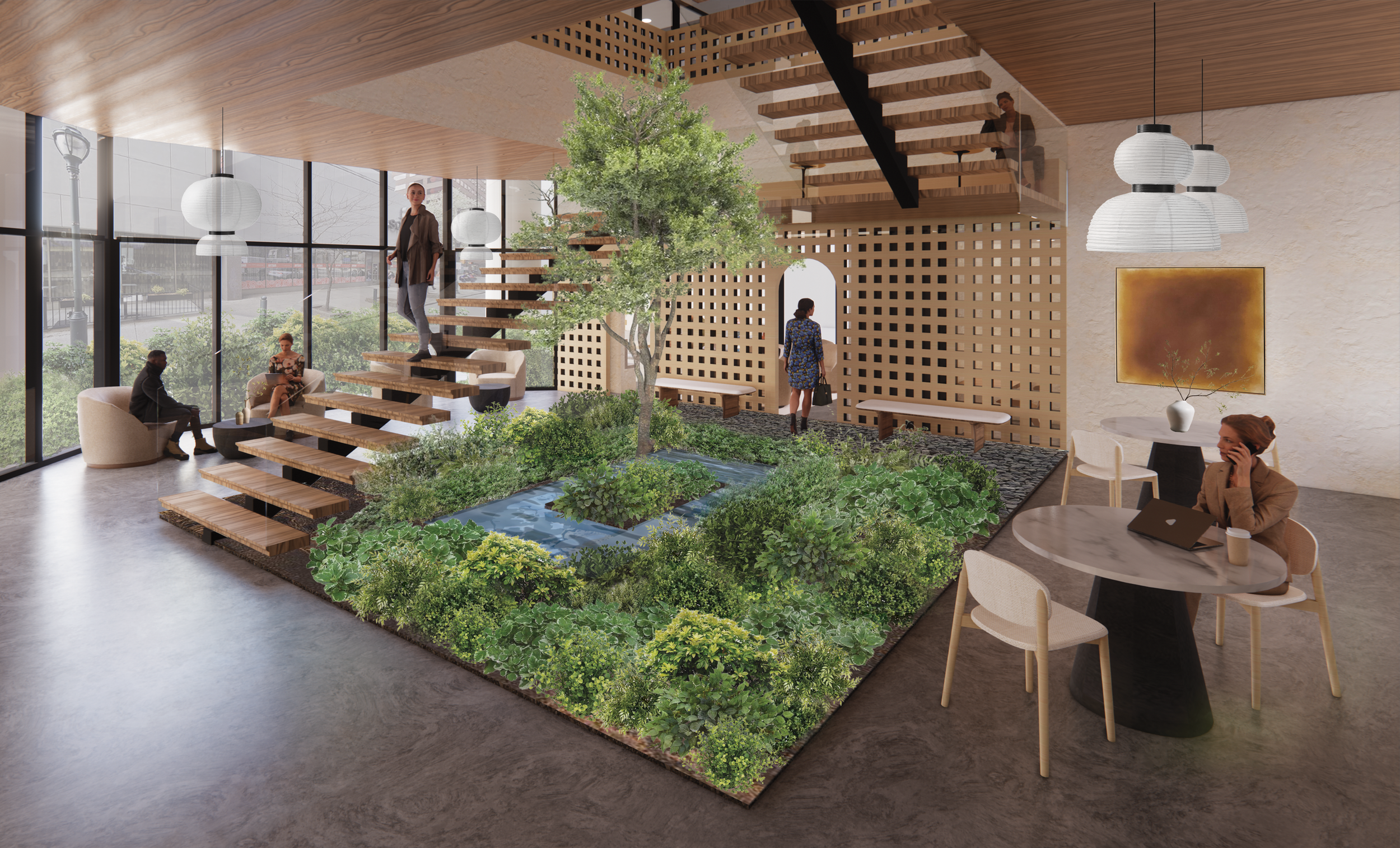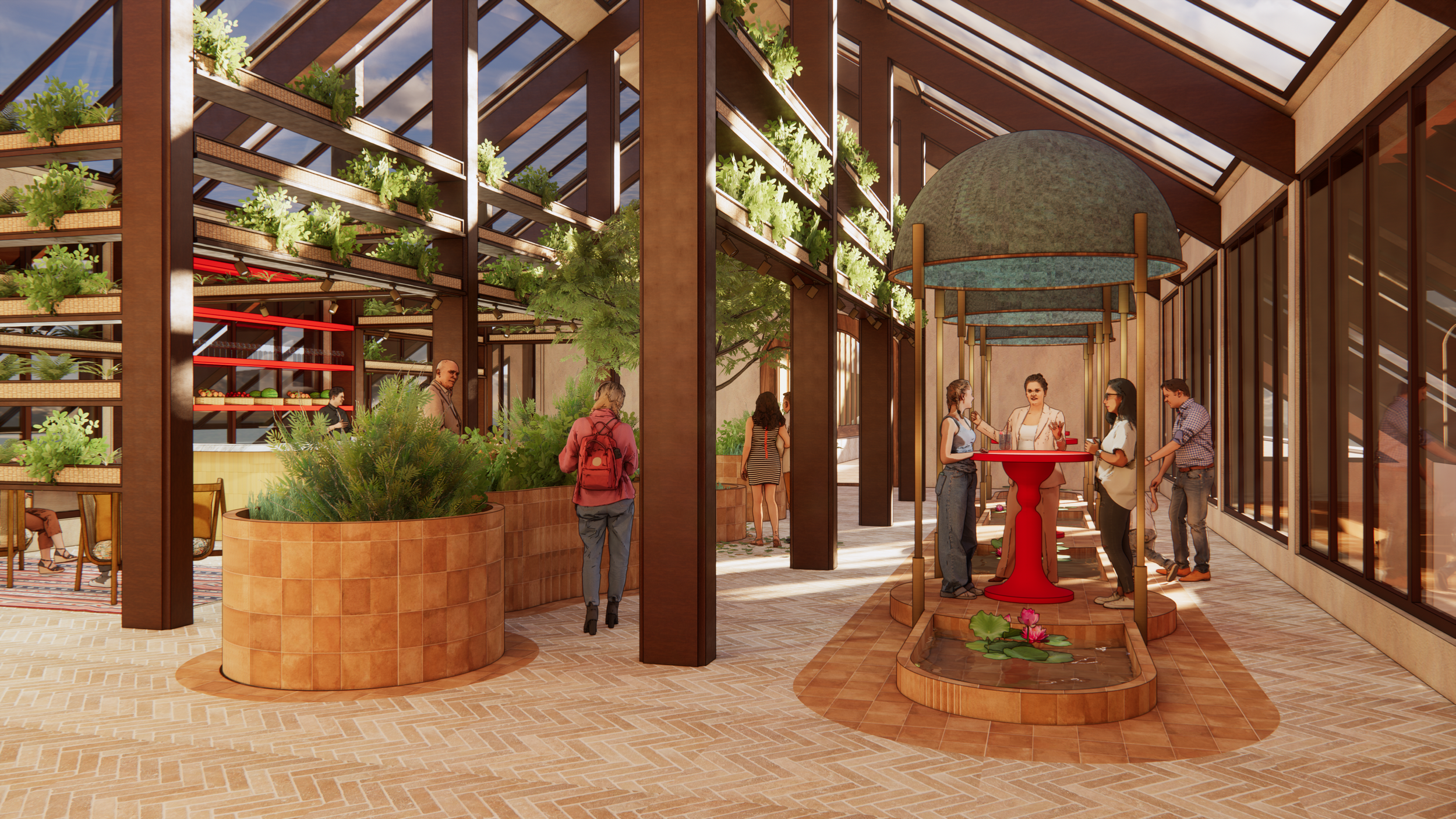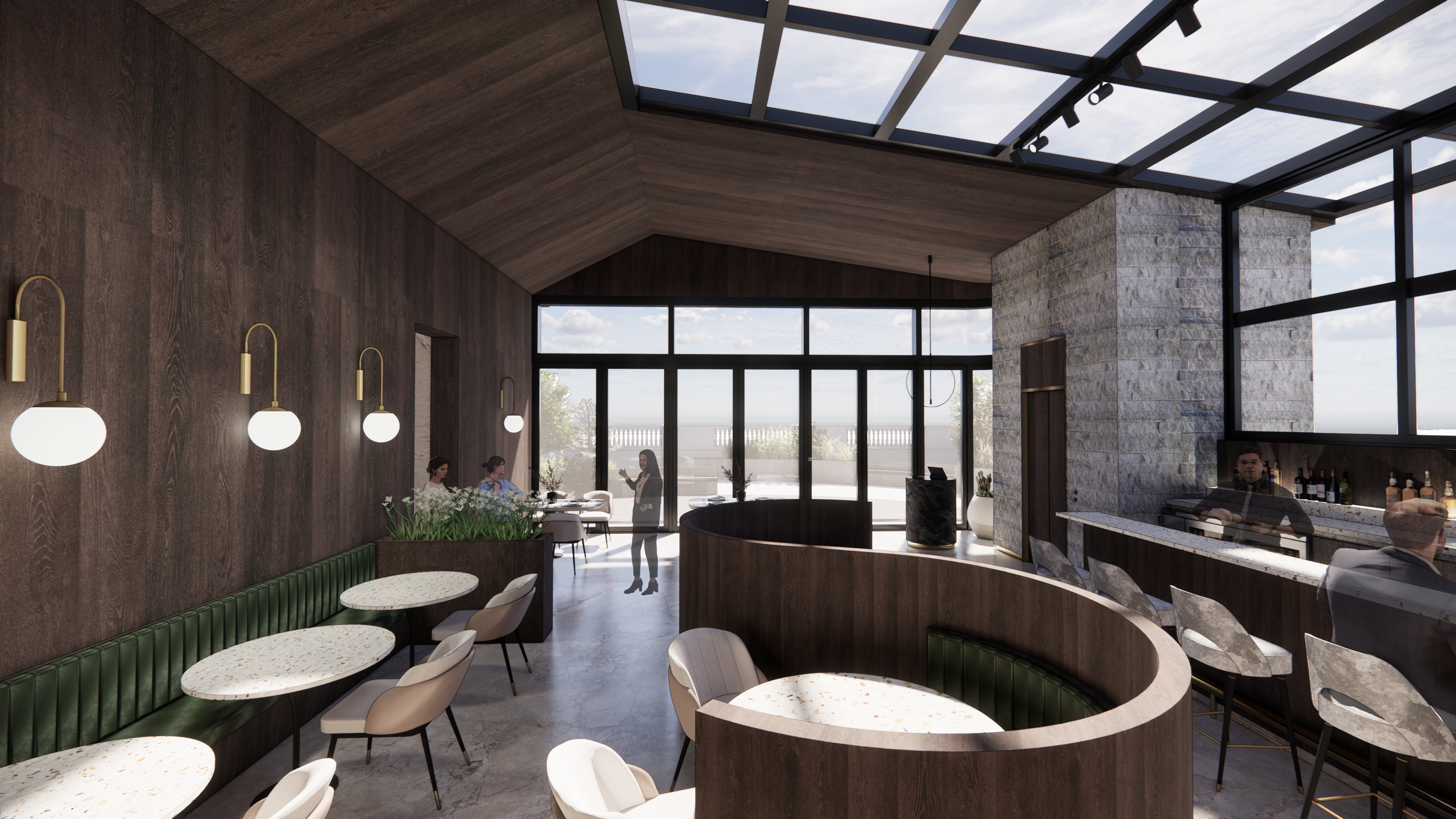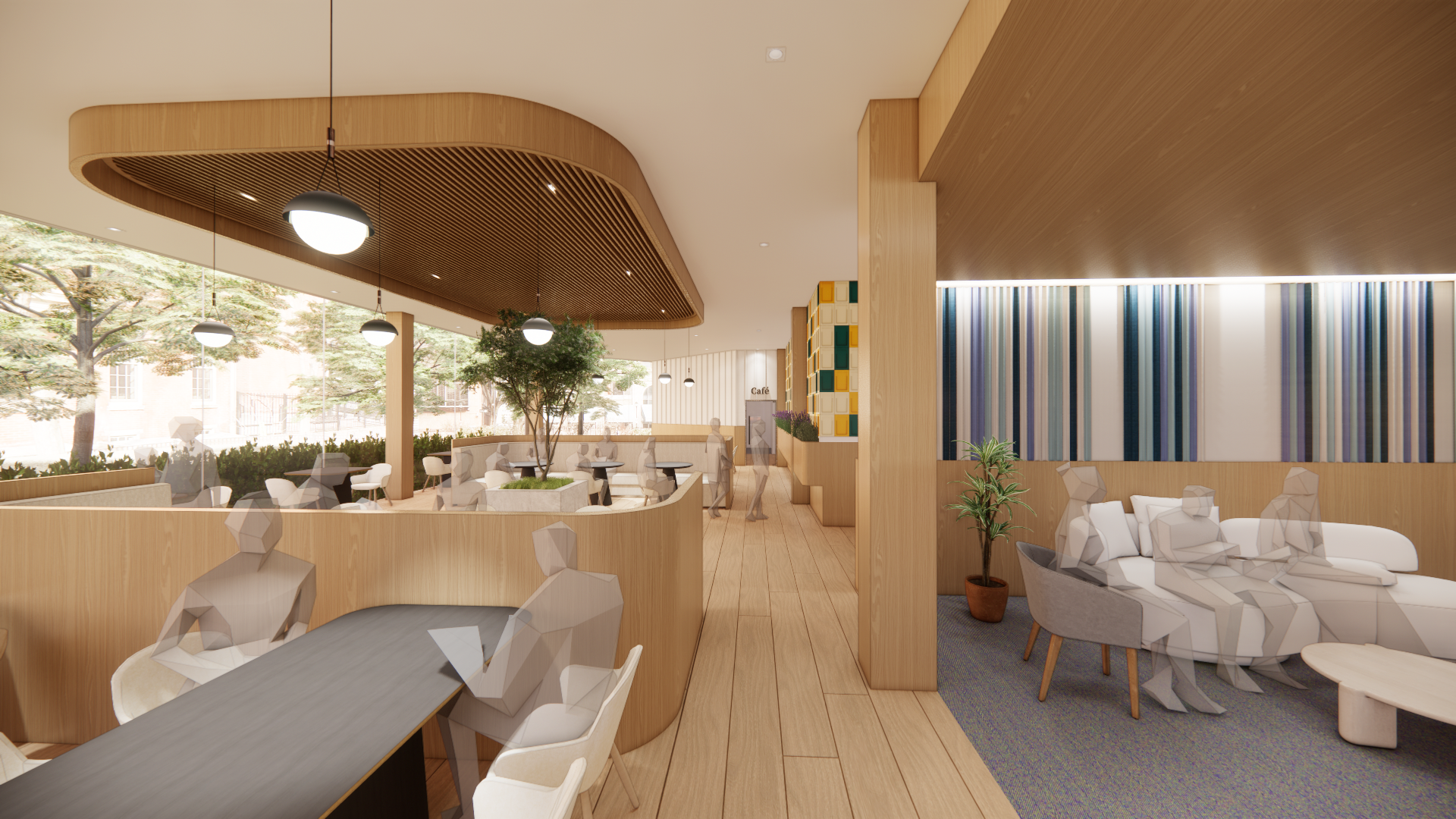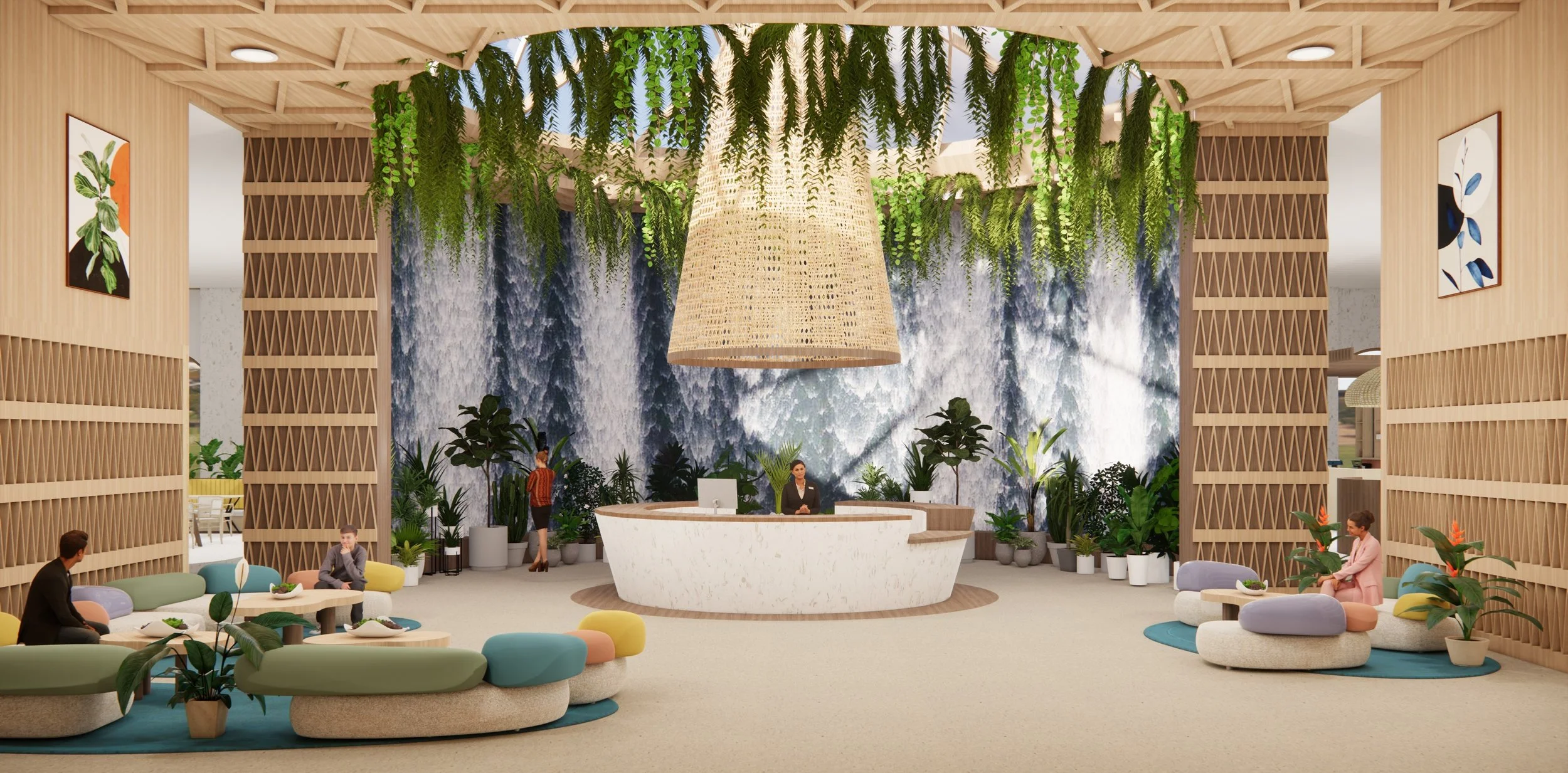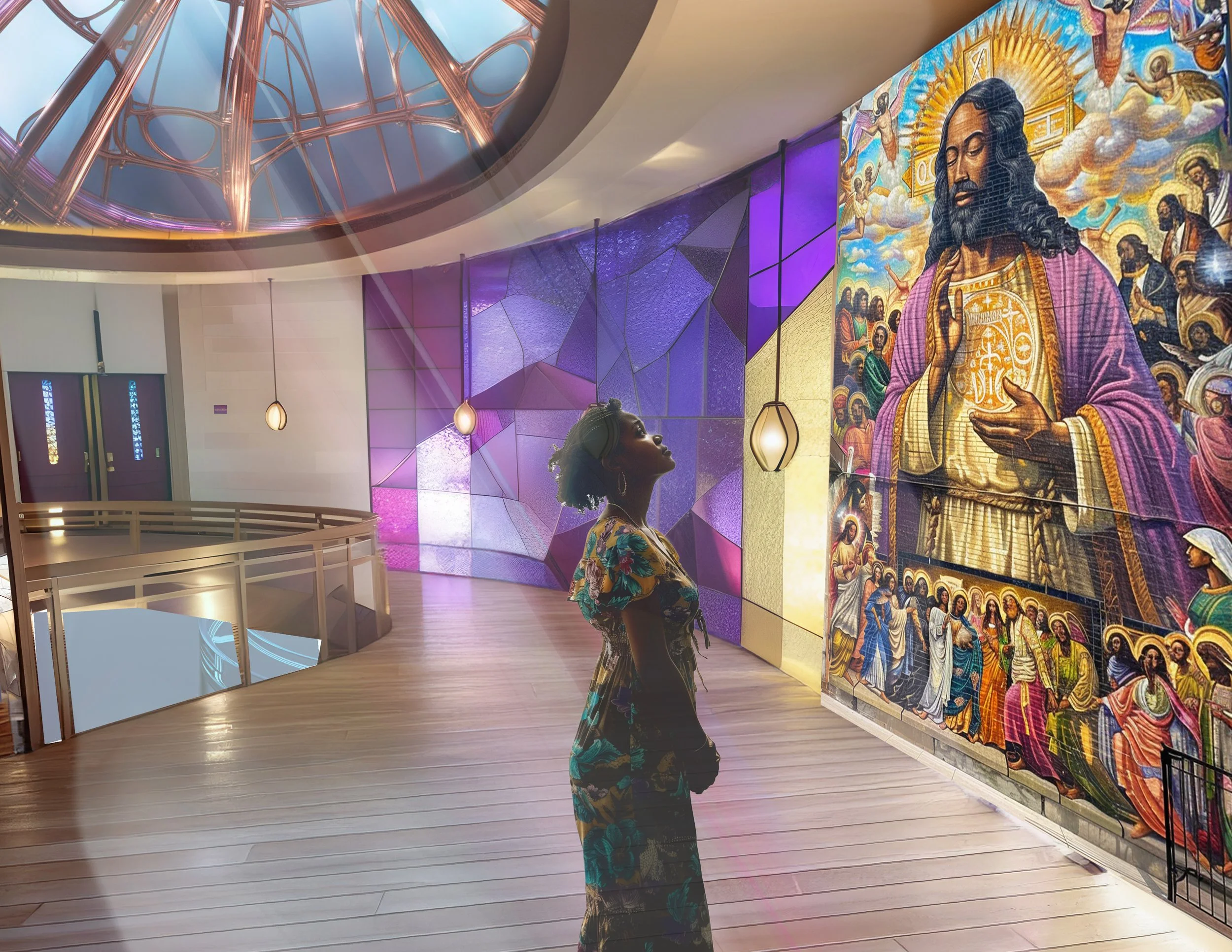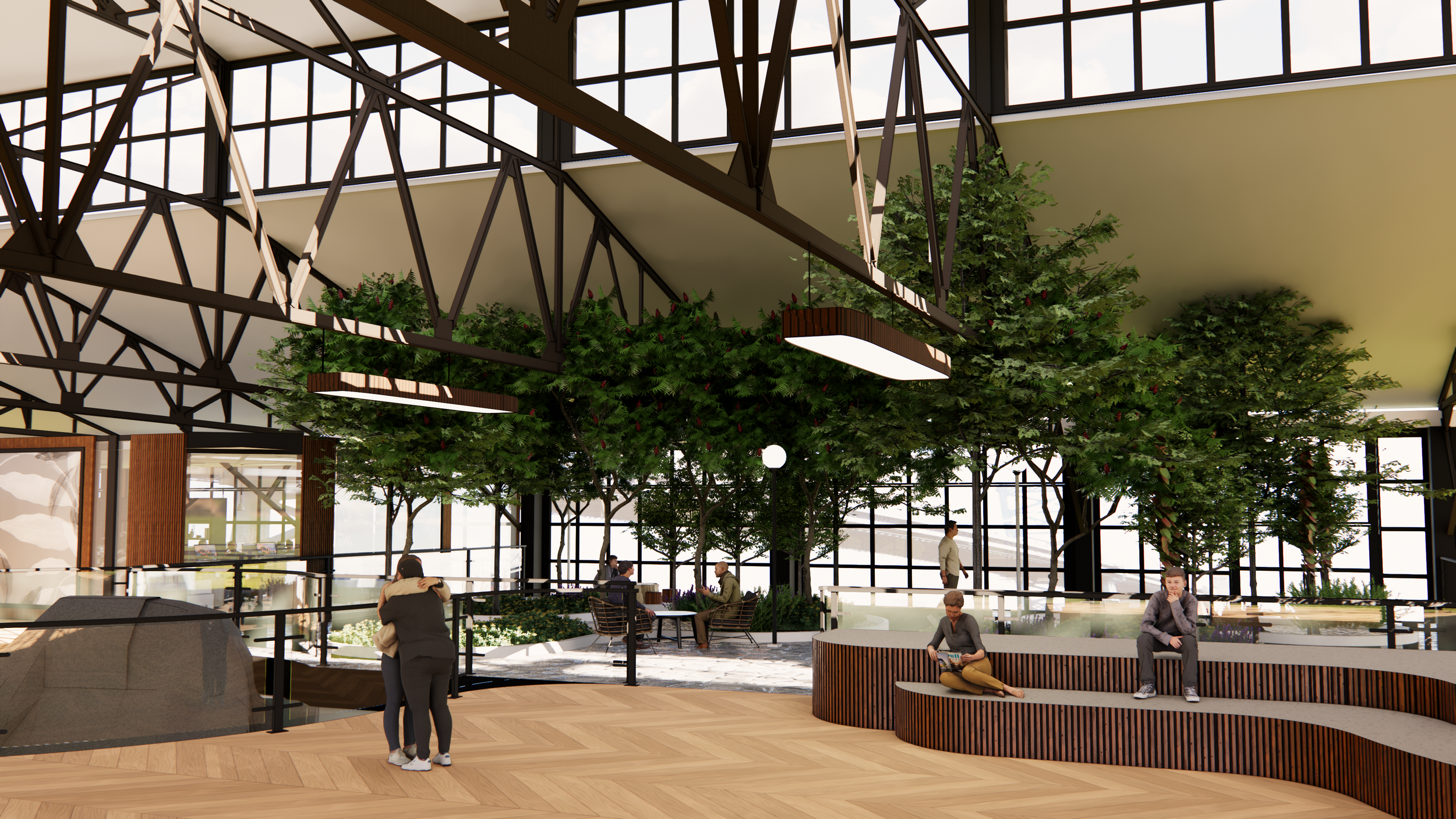Thesis Projects
Thesis Projects by Year
Children's Joyful Hospice Care to Feel Like Any Other Child
Children's hospice care is dedicated to providing compassionate and comprehensive support to children facing life-limiting illnesses with a prognosis of six months or less. This thesis proposes a groundbreaking design concept for children's hospice care, prioritizing individualized care and emotional support through the integration of nature, flexible spaces, vibrant aesthetics, and holistic sensory elements. By creating a sanctuary where children can rediscover the joys of childhood, even in the face of serious illness, the design aims to nurture the well-being of every child while providing unwavering support to families and caregivers. The proposed concept seeks to transform hospice care into a place of joy, comfort, and positive memories for both children and their families, emphasizing holistic sensory wellness, community engagement, and compassionate design principles.
Reflective Effect: Materiality Impact on Embodied Cognition in Experience Design
Exploring the relationship between humans and the environment by combining reflective materials and immersive design. This project focuses on how architectural/interior designs use reflective surfaces to transform spaces and explores the growing prominence of reflection in the human experience. These surfaces' symbolic and illusionary aspects blur the traditional boundaries between internal and external characteristics. It can bridge the gap between the occupants and the surrounding space and is a spatial phenomenon that allows people to observe themselves in their surroundings. Moreover, reflective materials in interior spaces create engaging and immersive user experiences by taking advantage of our embodied cognition. These materials aid in the physical body’s complete immersion in its environment. By designing intuitive interfaces responsive to our physical experiences, we can create more dynamic spaces that reflect our embodied experiences.
Mindful Consumption: A Rethinking of Shopping Experience
Consumerism is not only devastating our natural resources, but it also diminishes individual well-being. Rather than enhancing well-being, the expanding populations of high consumption societies are likely to have adverse effects. Even when we buy the things we really wanted, we start to want more. Fulfilling our desires never seems to satisfy us; we continually seek more happiness. Mindfulness is strongly and positively connected to higher happiness. In the context of consumption, mindfulness leads to consumer mindfulness. shopping is an activity that involves a range of practices such as experiencing public spaces, “hanging out,” and wandering around. As such, it can be understood as a leisure activity in its own right that does not necessarily involve the actual purchase of goods. I will explore various aspects related to habits, consumerism, sustainability, and the concept of a futuristic shopping experience that goes beyond traditional retail spaces, to provide education and encourage thoughtful consumption.
Beyond Shelter: Navigating the In-Between with Third Spaces for Individuals Experiencing Homelessness
Individuals experiencing homelessness exist in a dichotomy that is enforced by stereotypes and manifests in a limited scope of services, even in major metropolitan cities like Philadelphia. Homeless vs. Housed – it is a distinction that dictates the types of environments people can, or should, inhabit. For individuals experiencing homelessness, shelter is not the only solution. Spaces for the in-between, that are designed for a population in transition in order to help them heal, establish stability, and create networks within their communities, are missing. This project aims to bridge this gap through the design of an interconnected network of third spaces designed to support and empower individuals experiencing homelessness at three scales: individual, group, and community. Spaces that treat all people with dignity and respect, meeting people where they are currently instead of waiting for them to navigate crises alone, is an essential first step to fostering stronger, healthier, and more inclusive communities for all.
Preserving Culture Through Indian Dance in Contemporary India
My thesis project focuses on preserving Indian dance culture by enhancing community awareness through thoughtfully designed artworks. Indian dance, with its rich heritage and diversity, embodies a plethora of traditions that reflect the cultural ethos of various regions. This project aims to create a deeper understanding and appreciation of these dance forms within the community, ensuring their continuity for future generations.
By integrating traditional and contemporary design elements, the artworks will serve as educational tools and inspirational pieces. They will highlight the historical significance, intricate movements, and emotional expressions inherent in Indian dance. Additionally, these artworks will be strategically placed in public and private spaces to maximize visibility and engagement.
The project's ultimate goal is to foster a supportive environment for Indian dance, providing spaces that encourage both practice and performance. Through this artistic initiative, the community will gain a renewed understanding and respect for the cultural and artistic value of Indian dance.
Mind Palace : Exploring Connections Between Memory, Accessibility and Personal Storytelling
The Mind Palace is an intergenerational daycare center that aims to promote healthy cognitive aging in place through community driven programming and design. It seeks to understand and explore attachments formed with the built environment through personal storytelling, wayfinding, and cognition. Design decisions are informed by inferences gained through employing a research driven process by reactivating a neighborhood landmark, this project supports cognitive aging in the Mantua/ Powelton community. Evidence-based methods include participatory sessions with community and expert interviews.
Meta/Physical: Designing for Transcendence in a Community Library
We all have an innate need for transcendent experiences – moments that are “beyond or above the range of normal or merely physical human experience.” To meet this need, Meta/Physical proposes adding an experience of transcendence to people’s regular routines through the design of a public library branch. With a particular focus on the use of light and shadow, transparency and opacity, wabi-sabi, color theory, connection to nature, and scale, this library space acts as a respite from the outside world.
Urban Sanctuaries for Girls: Empowering the Future Through Cultural Reverence and Resilience
Grounded in the cultural concept of nature as a divine feminine, this project envisions safe urban sanctuaries for young girls in India, addressing and confronting systemic gender-based challenges. Despite a culture that venerates nature as a powerful feminine force, young girls in India often face severe adversities such as female infanticide, child marriage, child labor, and sex slavery.
Establishing a new paradigm by returning to native, traditional practices that centered on and respected womanhood, these centers will nurture the girls' potential through empowerment, equity, and sustainability
The goal is to foster an environment where young girls can overcome societal burdens, thrive, and become resilient.
Welcome to Abhaya Nivas: A Fearless Dwelling for Vulnerable Girls
[Re]Rural: designing the built environment as a parallel context study
We inhabit dual realms: with [re]rural, these realms are rural necessities and urban desires. This thesis focuses on drawing parallels between different types of rural environments—a reservation in the USA and a village in India—with the aim of making these villages self-sustainable using currently available resources. Rural spaces have long been shaped by a lack of planning, where the presence of people and community gave culture to the structures. This living tradition is the focus of my design.
For this project, my aim is to use these building modules to redesign according to the current needs of the masses. How we live is often defined by these four aspects, which are also the areas of design (nodes) in this project: healthcare, housing, education, and commerce. Throughout this journey, experiences have become narratives, learnings have become intents, structures have become spaces, all with one intention—[re]rural.
Forest in the Sky: Reimagining the Urban Skyline Via Biophilic Living
Urbanization has led to a loss of interaction with nature over time, which is a process defined as extinction of experience. This is significant because nature is crucial to the physical, psychological, and social well-being of humans. My thesis seeks to restore this loss of interaction through a nature infused urban apartment complex, guided by design methods of expansion and contraction and biophilic principles. Amenities include a co-working space, cafe, fitness center, lounge areas, and rooftop garden. Each of these settings offers users unique opportunities to engage with nature. Additionally, every apartment unit features a plant filled balcony, allowing inhabitants to directly engage with nature in their homes. By integrating design practices of expansion and contraction and biophilic principles, my thesis aims to create a harmonious living environment that reestablishes our bond with nature through a modern lens.
Culinary Confluence: Uniting India's Cultural Diversity through Foodways for Immigrants and Global Communities
The contemporary landscape of international migration brings numerous challenges as individuals navigate the intricate process of uprooting themselves, sacrificing cultural and familial ties, and adapting to unfamiliar environments. This journey often leads to a search for identity, belonging, and a connection to cultural roots. In this context, food emerges as a powerful connector, serving as more than sustenance but as a pathway to understanding and communicating the rich tapestry of India's cultural diversity. This thesis aims to create a space that unifies India's diverse traditions under one roof, using food and foodways as a means for immigrants and people from various backgrounds to experience and connect with the essence of Indian culture.
Nature Connection: Integrating Nature into Sensory Design
Modern humans spend about 95% of their lives indoors, constituting a significant portion of their time. This shift towards indoor living has underscored the importance of creating indoor spaces that prioritize health and well-being. Given this need, my thesis aims to explore connections between sensory design and nature, investigating how the integration of nature into sensory design can generate diverse and immersive sensory experiences indoors. This exploration seeks to understand how the fusion of natural elements and sensory design can enhance their collective impact, resulting in more captivating designs, novel experiences, and greater well-being.
Future proofing communities: enhancing community connectivity to promote elderly well-being
My primary objective of the thesis is to tackle the escalating issue of loneliness and isolation prevalent among the elderly post-retirement. This research endeavors to delineate a comprehensive framework centered around pivotal concepts such as 'Inhibiting Loneliness ,' 'Active Aging,' and 'Aging in Place.' The overarching aim is to establish a systematic approach for efficacious interventions. The paradigm shift from a reactive 'cure' model to a proactive 'prevention' model in addressing loneliness necessitates a concerted effort in promoting social engagement among the elderly, with a robust emphasis on community-centric strategies. The central focus is on cultivating a supportive environment within communities to foster meaningful connections, thereby contributing to the overall well-being of the elderly.
Creating Quiet Third Spaces using Introverted Design
Interior spaces foster community and create comfort for different types of people. The design of the spaces themselves can affect these experiences through function, aesthetic, materiality, and layout. This project investigates these experiences through the lens of introverts. As a self-identified introvert, many of life’s institutions are made by and for extroverts: schools, workplaces, and public spaces. This thesis delves into the reasons behind how these spaces are designed, and how integrating introverted spaces and communities in a more meaningful way is possible. Emphasizing the importance of quiet, reflective, and recharging spaces in urban environments for all types of people.
Revitalizing Urban Work Environments though Biophilic Design
Recognizing the detrimental effects of nature deprivation on human health within urban environments, my research investigates the adverse impacts of urban landscapes and proposes a solution through the integration of biophilic design. By highlighting the beneficial influence of nature on both mental and physical well-being, this study explores the transformative potential of incorporating natural elements into urban settings. My thesis specifically focuses on creating a biophilic co-working space for the working class in Mumbai, aiming to promote healthier and more sustainable urban environments that facilitate a harmonious coexistence between city dwellers and the natural world.
Sacred Spaces, Sacred Bodies
This thesis explores the role of spirituality in the lives of Black women and how it intersects with their experiences as women and as members of the Black community. It sheds light on the significant but often overlooked contributions of Black women in spiritual settings, where patriarchal norms tend to diminish their importance. The thesis highlights the symbolism of the female body, especially in relation to the cross. It also looks at how Western spirituality, particularly Christianity, blends with practices unique to Black women, creating a spiritual connection between the soul and God that goes beyond traditional religious practices. Ultimately, the thesis argues that Black Female Spirituality, influenced by Black feminism, offers a transformative perspective on religion, challenging traditional patriarchal structures and reimagining the roles of Black women within these spaces.
Pearl & the Moon: The Women’s Sphere, Spatial Empowerment, and Femininity
This thesis is immersed in materialist feminism, which critically examines the social and economic structures that perpetuate gender inequality, with a particular focus on the family, domesticity, and motherhood. Utilizing this theory, I will maintain a focus on reclaiming domestic spaces and defining a "feminine" space, as well as examining the association of women with specific spaces such as the kitchen, and expanding these spaces into a celebrated, collaborative, public realm. This endeavor seeks to redefine the characteristics constituting a "feminine" space, considering the intricate dynamics influenced by societal expectations, gender roles, and historical constraints. The design offers spaces to feel safe, to live, to work, and to feel celebrated in a joint community.
Discovering the Therapeutic Potential of Space for “Emotionally Unrecognized” Children
This thesis project focuses on the often-overlooked group of "Emotionally Unrecognized" children—those dealing with challenges like parental death, mental illness, parental incarceration, or high-conflict custody battles. It aims to uncover the therapeutic potential of purposefully designed spaces for children who experience trauma, emotional neglect, abuse, and adversity. The research studies the intricate relationship between built environments and human experiences. By emphasizing the transformative and healing capacities of environments, I highlight the significant role of interior architecture in supporting children's holistic development and well-being. The research focuses on creating healing, nurturing, and supportive spaces, integrating psychological and emotional dimensions into the design process.
Biophilic Design in Hybrid Workspaces: Enhancing Employee Wellbeing in a Post-Pandemic World
In a post-pandemic world, the traditional workspace has undergone a transformative shift, embracing hybrid work models. This thesis explores the evolving dynamics of future workspaces with a keen focus on employee wellbeing, specifically through the integration of biophilic design. By incorporating natural elements, fostering community connections, and promoting mental health, this study aims to highlight the benefits of biophilic environments on employee health, productivity, and overall satisfaction.
Hedge & Oxbow: Designing Enchantment and Awe
Hedge & Oxbow are a tavern and monumental site respectively along a network of footpaths in historic Hillsborough, NC. These spaces aim to reintroduce enchantment and awe into the built environment, and by extensions, the community. This will be accomplished through the use of vernacular architecture, heritage folklore, and communal ritual.






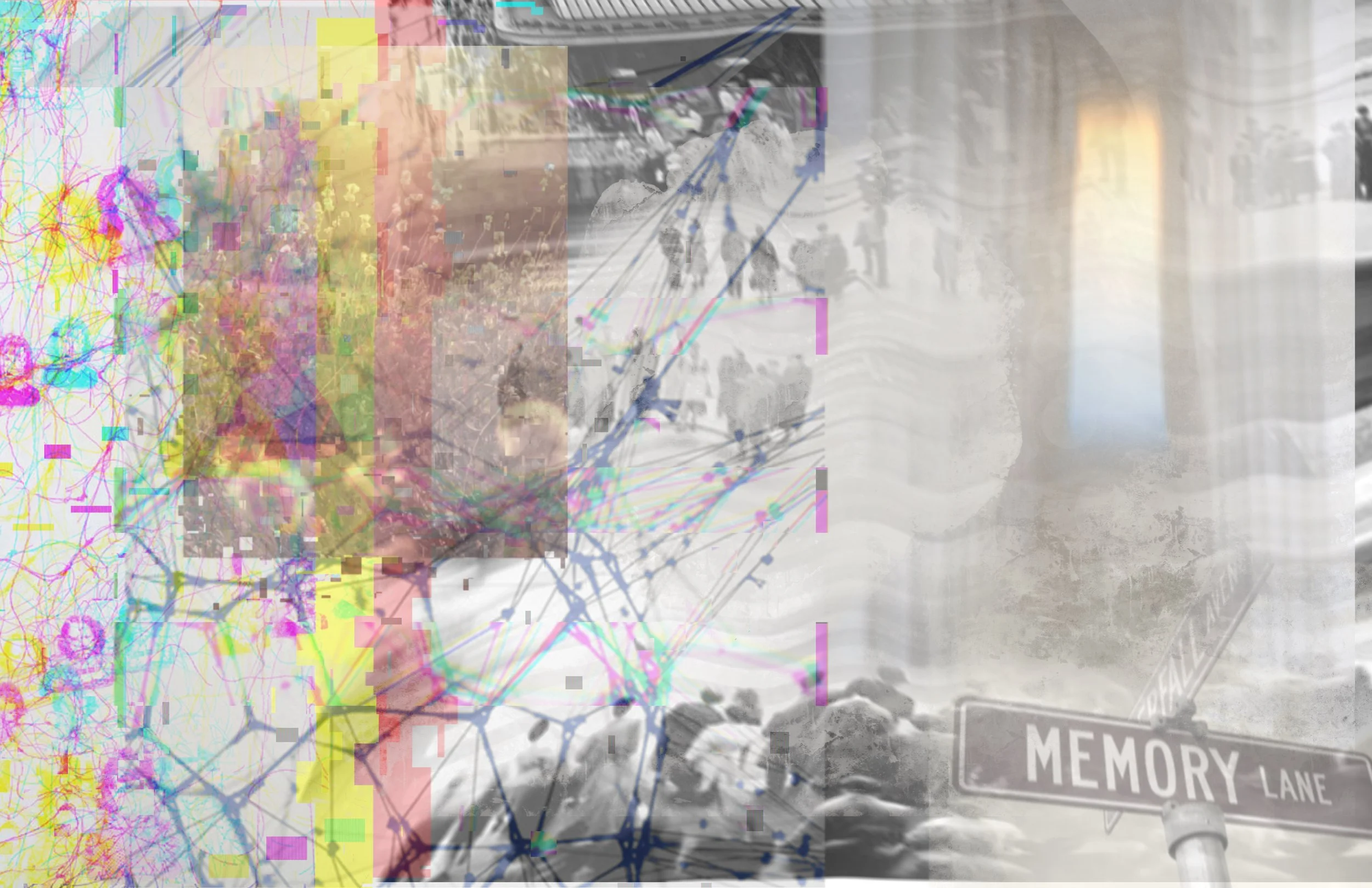
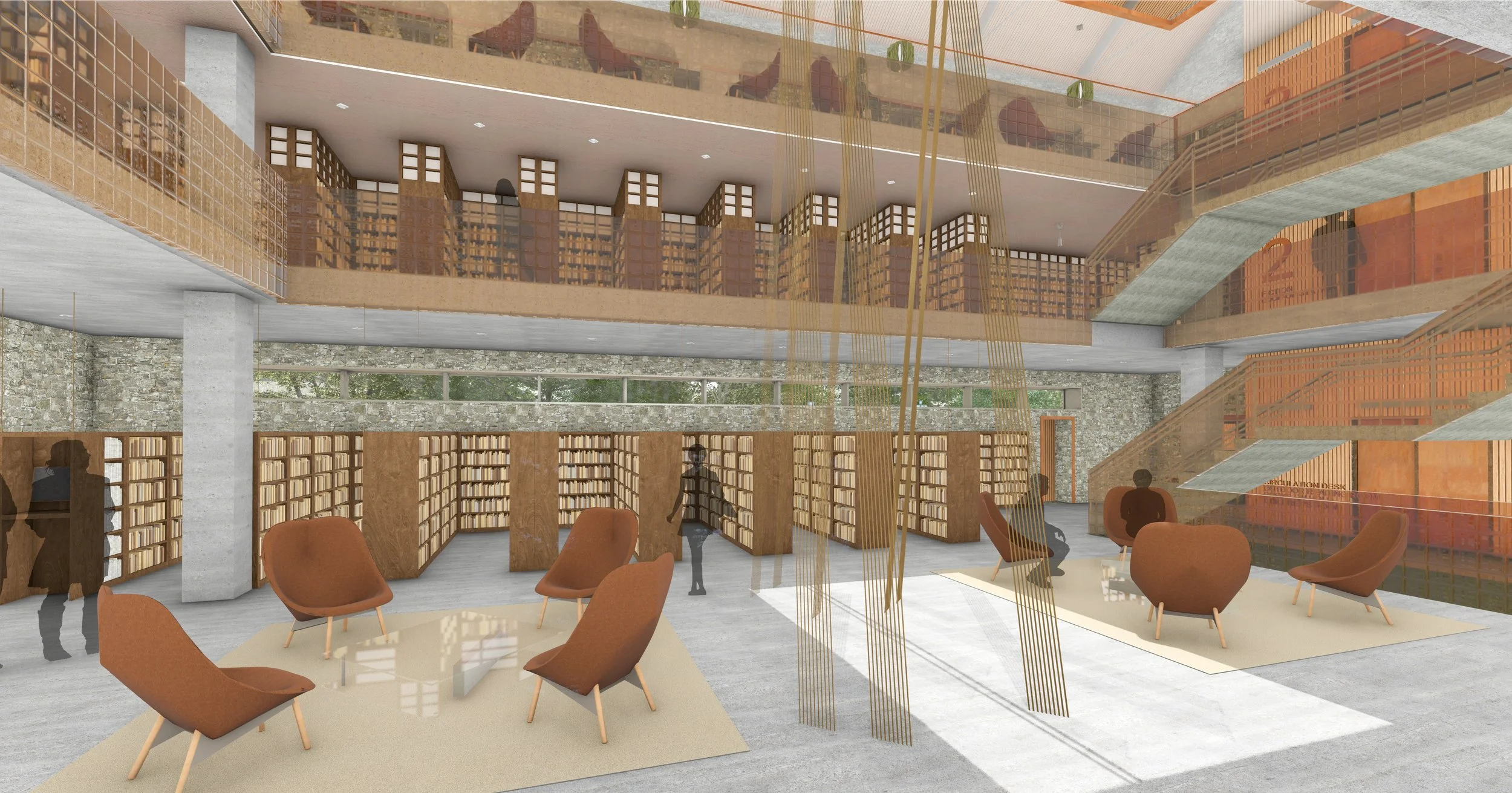

![[Re]Rural: designing the built environment as a parallel context study](https://images.squarespace-cdn.com/content/v1/5edf794680a94a6733d22936/1766991003334-9LA0YWYJS95KF9M001XW/Virpura+%2811%29.jpg)
